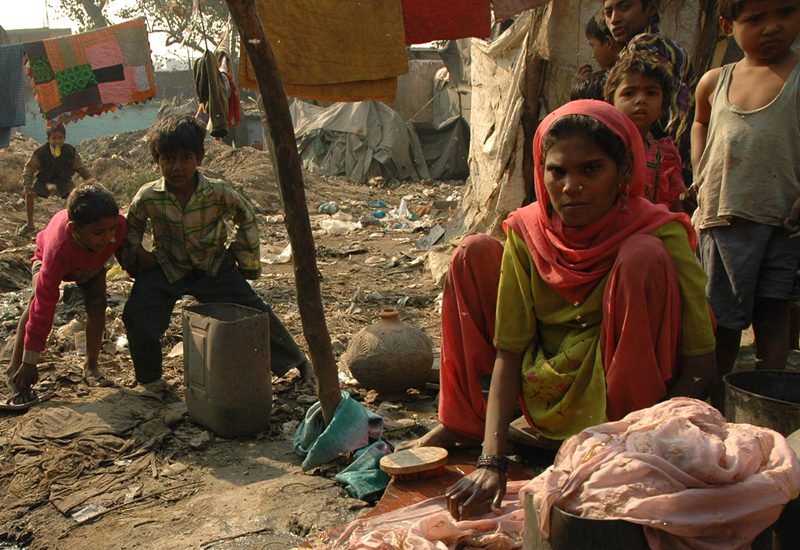It’s nearly impossible for people to stay healthy if they live somewhere without clean water or sanitation.
Asha makes slums safer places to live by helping residents get access to water, toilets, paved roads, street lighting and other amenities.
Many slums are ignored by the authorities, so residents’ pleas for water supplies or garbage disposal often go unanswered.

The Problems
Slum dwellers are vulnerable to the effects of disease, poverty and despair. The land they live on doesn’t belong to them, and they live in constant fear of eviction. Alcoholism, drug problems and domestic violence are common.
Typical slums have every kind of environmental problem you can imagine. Temporary huts that leak when it rains and provide hardly any barrier to heat or cold. Muddy lanes and poor drainage. Scavenging animals sharing space with humans. Scarce water supplies, or communal facilities in disrepair. No toilets, or only around 1 for each 125 people. Lack of electricity, cramped conditions and no security.
Most slum residents have struggled to find somewhere to settle and are mainly concerned with earning a living. Very few are motivated to improve the slum environment, and so all the problems remain or get worse. A lack of shared responsibility creates problems in maintaining water pumps or toilets that may be installed, and the threat of eviction is always present.
Many slums are ignored by the authorities, so residents’ pleas for water supplies or garbage disposal often go unanswered. The result is inevitable: settlements remain vulnerable to the elements, lack of water and sanitation increase disease, and the residents’ sense of helplessness leads them to accept their situation and fall deeper into poverty.

Your Donation can help
Asha is working relentlessly towards bringing holistic development in the urban slums of Delhi. We’ll ensure that whatever you can afford will be put to the best possible use and give even more people hope for a better future.

Asha’s solutions
Communities taking action
Asha focuses on training community members and enabling them to achieve change. With knowledge, women gain the confidence to approach government officials, police and head teachers to improve their environment and opportunities for education, and can even influence the attitudes of entire slum communities.
Asha works to make community members aware of their right to safe water and sanitation. We show members of community groups, particularly the women, how to write applications to government departments for better water supplies, electricity connections and other basic amenities. With training, they can work as effective pressure groups and develop independent links with influential staff of government departments.
Over the years, community groups have successfully got lanes paved, areas of swampy ground drained, water pumps installed, tube wells dug and toilet complexes built. All these things dramatically improve their quality of life, and that of their fellow slum residents.
Starting education at a young age
We target children and young people within slum areas to give them a sense of community responsibility and make sure that they know the importance of a sanitary environment.
Children’s groups carry out regular sanitation drives and urge community residents to join them in keeping the slum lanes clean.

